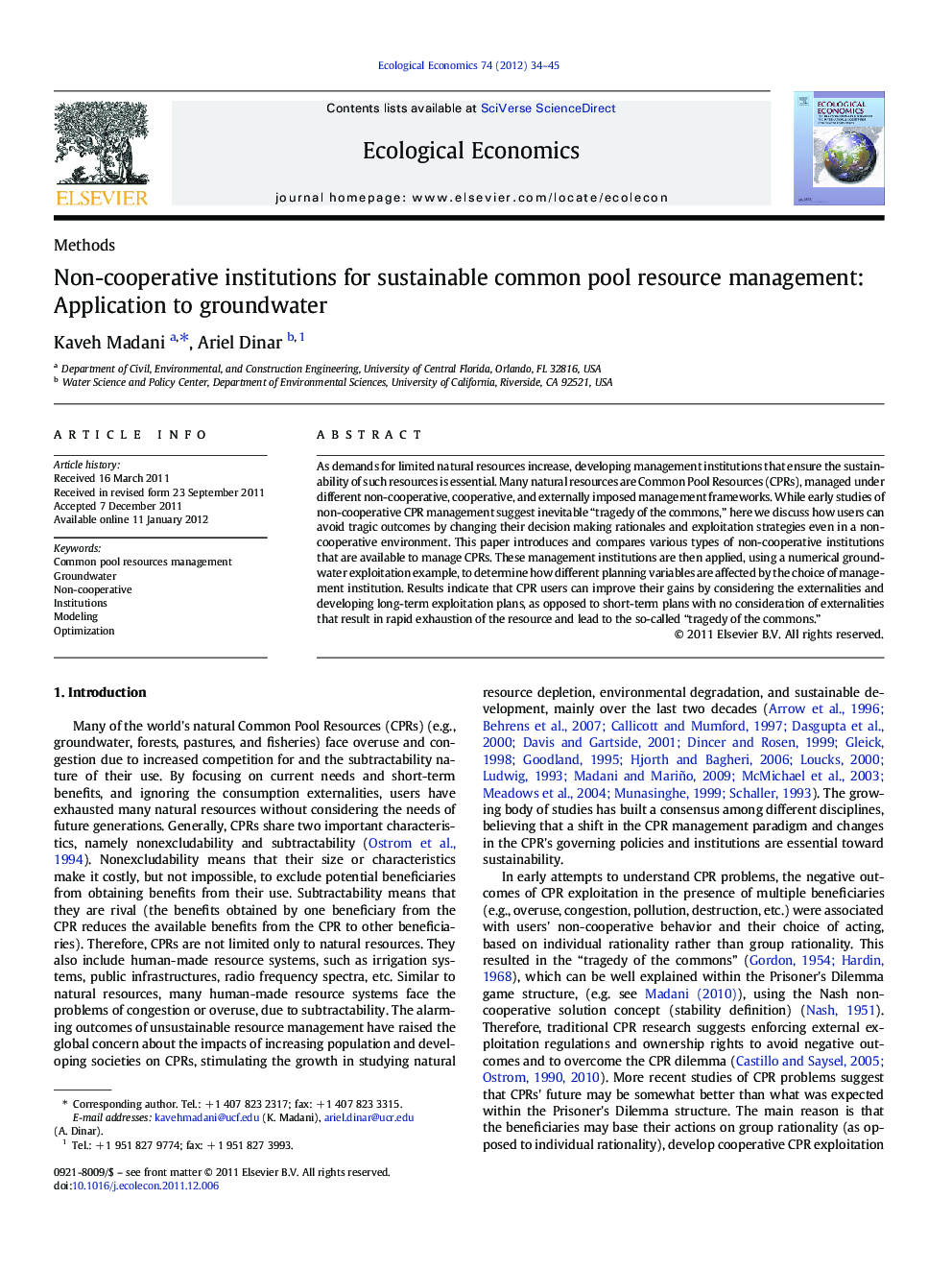| Article ID | Journal | Published Year | Pages | File Type |
|---|---|---|---|---|
| 5050437 | Ecological Economics | 2012 | 12 Pages |
As demands for limited natural resources increase, developing management institutions that ensure the sustainability of such resources is essential. Many natural resources are Common Pool Resources (CPRs), managed under different non-cooperative, cooperative, and externally imposed management frameworks. While early studies of non-cooperative CPR management suggest inevitable “tragedy of the commons,” here we discuss how users can avoid tragic outcomes by changing their decision making rationales and exploitation strategies even in a non-cooperative environment. This paper introduces and compares various types of non-cooperative institutions that are available to manage CPRs. These management institutions are then applied, using a numerical groundwater exploitation example, to determine how different planning variables are affected by the choice of management institution. Results indicate that CPR users can improve their gains by considering the externalities and developing long-term exploitation plans, as opposed to short-term plans with no consideration of externalities that result in rapid exhaustion of the resource and lead to the so-called “tragedy of the commons.”
⺠Introduction and comparison of various types of non-cooperative institutions for managing Common Pool Resources (CPRs). ⺠Discussion of how parties can manage CPRs sustainably and avoid “tragedy of commons” even under non-cooperative environments. ⺠Highlighting the importance of long-term planning and consideration of externalities in sustainable management of CPRs. ⺠Developing a groundwater decision making model which accounts for groundwater use externalities.
